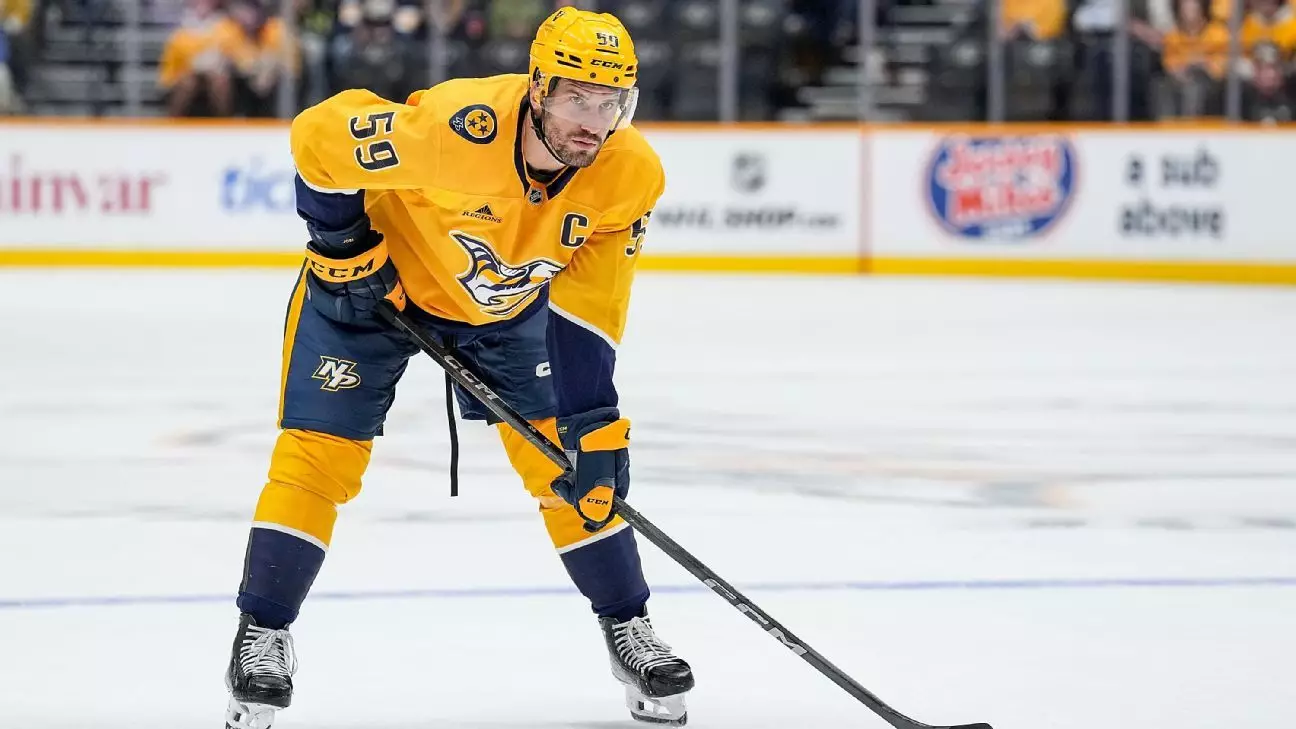Nashville Predators captain Roman Josi’s recent battle with postural tachycardia syndrome (POTS) demonstrates the incredible strength required both physically and mentally to excel in professional sports. Diagnosed late in the previous season, Josi’s condition, characterized by an abnormally fast heart rate, dizziness, and extreme fatigue, sidelined him significantly. Yet, his resolve to overcome this challenge shines through. General manager Barry Trotz’s statement about Josi’s ongoing treatment and positive progress is not merely a note of hope; it is an essential reminder that the human spirit can triumph in the face of adversity.
Josi’s journey isn’t just a personal saga but a testament to his leadership on and off the ice. At the age of 35, he represents more than just statistics, proven by his illustrious career featuring 190 goals and 534 assists over 962 games. Leading the Predators through trials reflects a quality that makes a player truly great: resilience. As he prepares for the 2025-26 season, there is a collective anticipation from fans and teammates alike. His potential return signifies not only the comeback of a stellar player but also the heartbeat of the team itself.
Implications for the Team and Future Aspirations
The Predators are not merely waiting for Josi’s return; they are actively adapting. The acquisition of forward Erik Haula from New Jersey adds an intriguing dynamic to the roster. Haula, who brings with him a wealth of NHL experience across multiple teams, including a previous stint with Nashville, embodies the kind of strategic enhancement that can benefit the Predators both now and in the future. By bringing a player with his caliber into the fold, the franchise acknowledges the need to build an all-rounded squad that can both support veterans like Josi and develop newer talents.
Trotz’s strategic foresight in making such moves underscores a broader philosophy—the understanding that a franchise’s success hinges upon a balance between seasoned veterans and energetic newcomers. With nine picks in the upcoming NHL draft, including three in the first round, the Predators are poised to carve a path forward, potentially injecting fresh talent into their ranks while offering established players the support they need.
The Power of Collective Endurance
What’s particularly inspiring about Josi’s scenario—and indeed the Predators’ current positioning—is the underlying theme of collective endurance. In professional hockey, the journey is rarely a solitary one. The camaraderie among players not only propels individuals but often unites them in overcoming challenges, both on the ice and in their personal lives. The anticipation of Josi’s comeback is not seen as the return of a singular player but as the resurgence of team spirit itself, an energy that electrifies the arena and fills fans with optimism.
Every practice session, every game, and every moment of resilience inflates the hope that Josi’s fight against POTS will embolden a new chapter in his career. As the Predators gear up for an exciting season ahead, the narrative of Josi’s health journey offers an empowering reminder of the strength found within vulnerability. The world of sports remains at the beating heart of aspirations, and in Josi, we find an emblem of triumph for himself and the Nashville Predators as a whole. The impending season promises more than just a display of athleticism; it will manifest as a celebration of resilience, teamwork, and an unwavering commitment to excellence.

